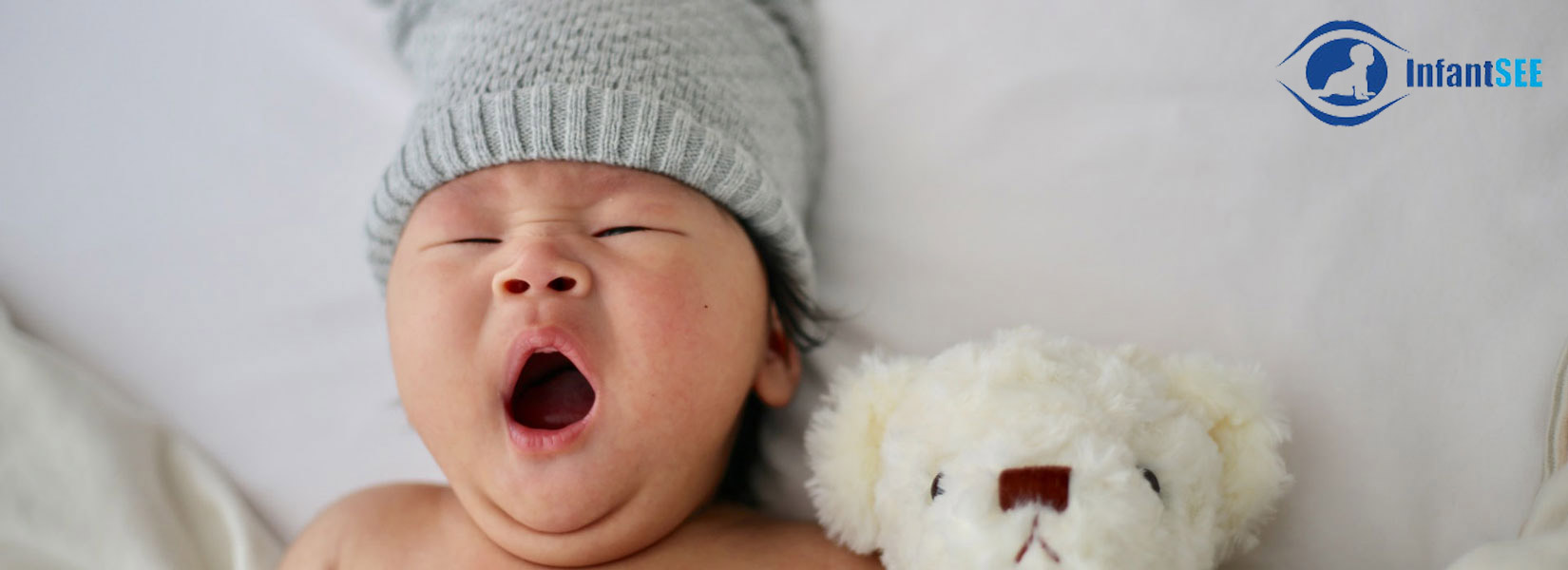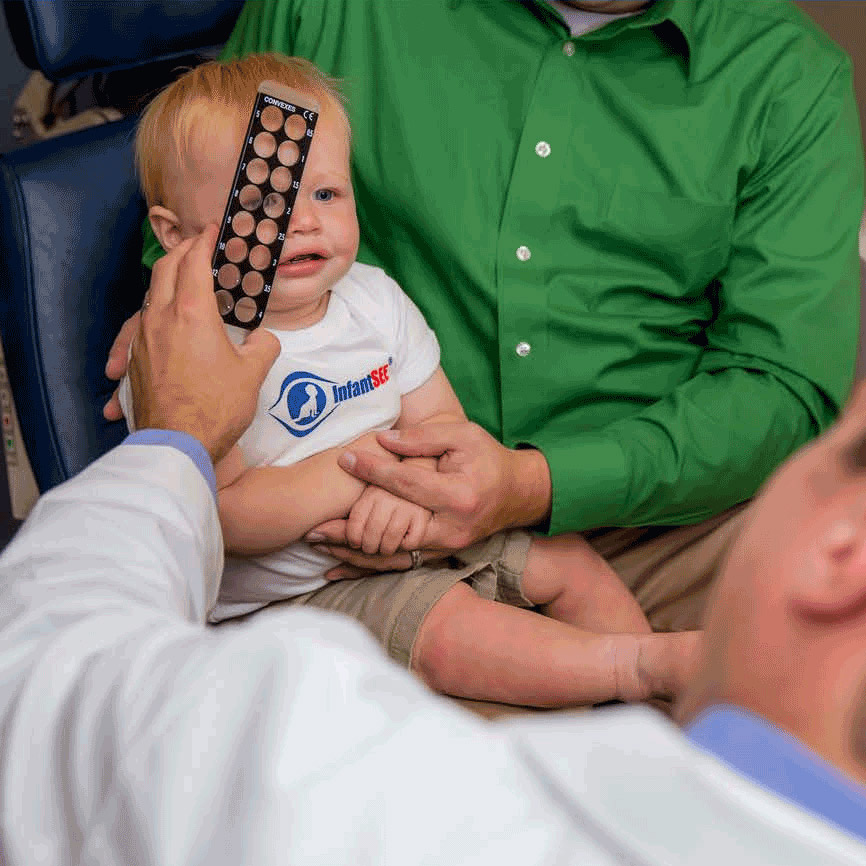
InfantSEE: Giving your baby the healthy start they deserve
Concerned your child’s vision might be hindering their development?
Do your baby’s eyes not seem to be lining up correctly?
InfantSEE is a public health program, whose goal is to make infant eye care affordable for everyone, regardless of income or access to insurance.
Member optometrists of the American Optometric Association (AOA) that participate in the InfantSEE program commit to providing a no-cost comprehensive eye and vision assessment to all infants 6-12 months old.
Visit our Christenson Vision Care in Hudson today to see how we can help your baby thrive!

4 Ways to Help Your Baby’s Visual Development
-
Schedule baby’s first eye exam
Our InfantSEE eye care professionals recommend that your baby’s first exam be scheduled around the time they are 6 months old.
-
Stimulate vision through play
Interact with your baby by playing visually interesting and stimulating games with colorful toys and moving objects.
-
Encourage exploration
Help your child explore their world. Encourage crawling, playing in a sandbox, reaching for and holding different toys and objects in their surroundings.
-
Watch for missed milestones
If your child’s development seems to be unusually slow, speak to your eye doctor to see whether their vision may be part of the issue. Timely treatment may prevent future complications.
Our eye care professionals in Hudson know exactly what to look for to ensure that your child’s vision is at its best. We at Christenson Vision Care are dedicated to helping them experience all the beautiful sights the world has to offer.

- First, a few questions…
Your baby’s first eye exam will start with the eye doctor asking you a few questions to learn about your baby’s personal and family health history. Was the baby born prematurely? Is there a history in the family of eye conditions such as astigmatism, myopia (nearsightedness) or hyperopia (farsightedness)? This information will help your optometrist know what things to look out for during the exam. - Checking your baby’s vision
Your baby’s eye doctor may choose to dilate their pupils to get a better look at the back of their eyes for signs of eye disease. They will also check for refractive errors and early signs of infection or malformation in the eye, evaluate your baby’s eyes for coordination, and rule-out conditions such as strabismus (crossed-eyes) and amblyopia (lazy eye). - Vision Correction and Treatment
If your little one is found to have a refractive error such as myopia, hyperopia or astigmatism, special eyeglasses for infants will be prescribed. Your eye doctor will likely ask you to bring your baby in for further evaluation if they find indications of certain eye diseases or conditions that require treatment.
InfantSEE® FAQs
InfantSEE is a public health program, managed by Optometry Cares - The AOA Foundation. Its purpose is to make sure that family income and access to insurance coverage do not become obstacles to making eye and vision care an essential part of infant wellness. To that end, AOA member optometrists who are part of the InfantSEE program provide a no-cost comprehensive eye and vision assessment to all infants 6-12 months old.
Within 6-12 months of age. A child’s visual development is most rapid and pronounced within the first year of life and is the period when the foundations of vision and visual skills are laid. If these foundations are undermined by vision conditions, eye diseases or refractive errors, it can have far-reaching consequences for the rest of your child’s life. Thanks to the InfantSEE program, pediatric eye doctors can detect and treat these conditions, to ensure that your child’s vision starts off right.
The aim of these screenings is to assess visual acuity (whether you have 20/20 vision), and are not meant to detect eye disease and other visual issues that would be found as part of a comprehensive eye exam with your local pediatric eye doctor. As a result, eye diseases such as cataracts or conditions such as amblyopia or strabismus are likely to go undetected, causing more severe damage the longer they go without treatment.
Your InfantSEE® Treatment Specialist in Hudson

Meet our Eye Doctors

- Monday 9:00 am - 6:00 pm
- Tuesday 8:00 am - 5:00 pm
- Wednesday 9:00 am - 6:00 pm
- Thursday 8:00 am - 6:00 pm
- Friday 7:30 am - 4:00 pm
- Saturday Closed
- Sunday Closed
- VSP
- Medicare
- United Healthcare
- Aetna
- Cigna
- Spectera
- Davis Vision
- EyeMed
- Anthem Blue Cross Blue Shield

